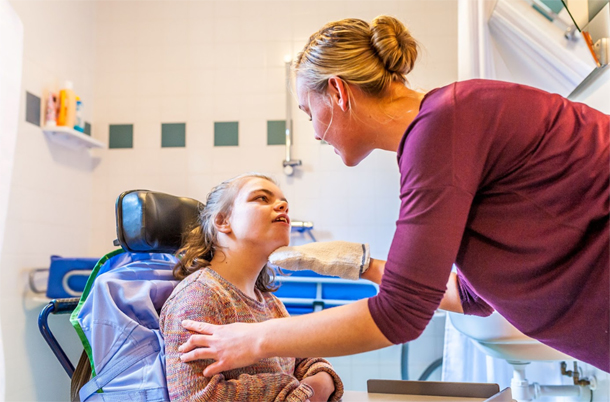The number of people with disabilities continues to rise worldwide. Disabilities are conditions that limit a person from performing tasks like others. Those affected often face challenges in meeting their basic needs and securing employment, even when they possess the necessary qualifications.
To address these issues, the Australian government established a scheme to support people with permanent disabilities: the National Disability Insurance Scheme (NDIS). It is designed to aid individuals with disabilities that impact their daily lives. This article will explore how Australia’s NDIS operates and the various ways it supports people with disabilities.
Providing Funding and Financial Help
One of the primary roles of the NDIS is to provide financial support to eligible individuals with disabilities. The organization allocates funding based on the personal needs of each participant. Every NDIS participant receives an individual plan outlining their objectives and the funding they have been granted. This approach allows individuals to use their allocated funding to purchase necessary support and services to help them achieve their goals, increase their independence, and improve their overall quality of life.
Some of the services funded by the NDIS management include daily personal activities, therapeutic support, and transportation assistance to enable individuals to participate in social and community events. The funding is intended to help people with disabilities have the same opportunities as others, such as securing housing, employment, and maintaining social connections with family and friends.
Conducting needs Assessments
To ensure that only those in genuine need receive support, the NDIS conducts thorough needs assessments. This process is essential to prevent fraudulent claims by individuals without disabilities who seek to benefit from the scheme’s resources. In recent years, there have been instances of people faking disabilities to access government support, depriving those who genuinely require assistance.
The NDIS requires individuals to provide evidence of their disability before they can access the scheme. The information required includes the nature of the disability, whether it is permanent, and how it affects daily functioning. If the evidence submitted is insufficient for the NDIS to make a decision regarding eligibility, applicants may be asked to provide additional proof, which may delay access to the scheme.
To expedite the process, it is advisable to provide clear and comprehensive information about the disability and its impact on daily activities. The needs assessment process allows the NDIS to consider each person’s disability, their support requirements, and their short- and long-term goals.
Connecting with Service Providers
The NDIS serves as a vital link between individuals with disabilities and appropriate support systems, particularly for children. Parents of children with disabilities often face unique challenges in providing the necessary care for their children, which can lead to financial and emotional strain. The NDIS helps connect families to the right support services to address their specific needs.
Parents who are concerned about their child’s development are encouraged to consult with professionals who know their child well, such as pediatricians or child health nurses. These professionals possess extensive knowledge about typical child development patterns and can help determine if a child requires specialized care. If a child is found to have a disability, the NDIS assists the family in connecting with the appropriate support services, like occupational therapy.
Additionally, the NDIS helps families apply for NDIS-funded plans if their child requires long-term early childhood support. Ultimately, the goal of the NDIS is to ensure that people with disabilities have equal opportunities to lead fulfilling lives.
Expanding Employment Opportunities
One of the key objectives of the NDIS is to promote economic participation for people with disabilities. The scheme provides support for individuals seeking employment, including skills training, workplace modifications, and specialized job placement services. By addressing the unique barriers faced by people with disabilities in the job market, the NDIS aims to create a more inclusive workforce that recognizes and values the contributions of all individuals, regardless of their abilities.
The NDIS works closely with employers, disability service providers, and community organizations to create an environment that supports diverse and inclusive employment opportunities. By fostering partnerships and promoting disability awareness, the NDIS encourages businesses to adopt inclusive hiring practices and provide reasonable accommodations for employees with disabilities.
Promoting Community Inclusion
Another essential aspect of the NDIS’s mission is to enhance social participation for people with disabilities. This goal is achieved by funding programs and activities that promote community engagement, such as sports clubs, arts groups, and volunteer organizations. By supporting these initiatives, the NDIS helps create inclusive communities where people with disabilities can form meaningful connections and engage in activities that enrich their lives.
Final Thoughts
The NDIS plays a crucial role in supporting people with disabilities by providing funding, conducting needs assessments to determine eligibility, connecting individuals with appropriate service providers, and promoting employment opportunities as well as community inclusion. It aims to ensure that people with disabilities are treated with dignity and respect and have the necessary support to lead fulfilling lives.
Author’s Bio – Violet Adams is a social worker and disability support advocate with a deep understanding of various disability insurance schemes. With over 6 years of experience in the field, she has provided guidance and assistance to numerous individuals and families navigating the process. Violet enjoys sharing her expertise and insights on disability support systems through guest posts on various health and social welfare blogs. In her free time, she loves spending time with her family, painting, and participating in local charity events.


